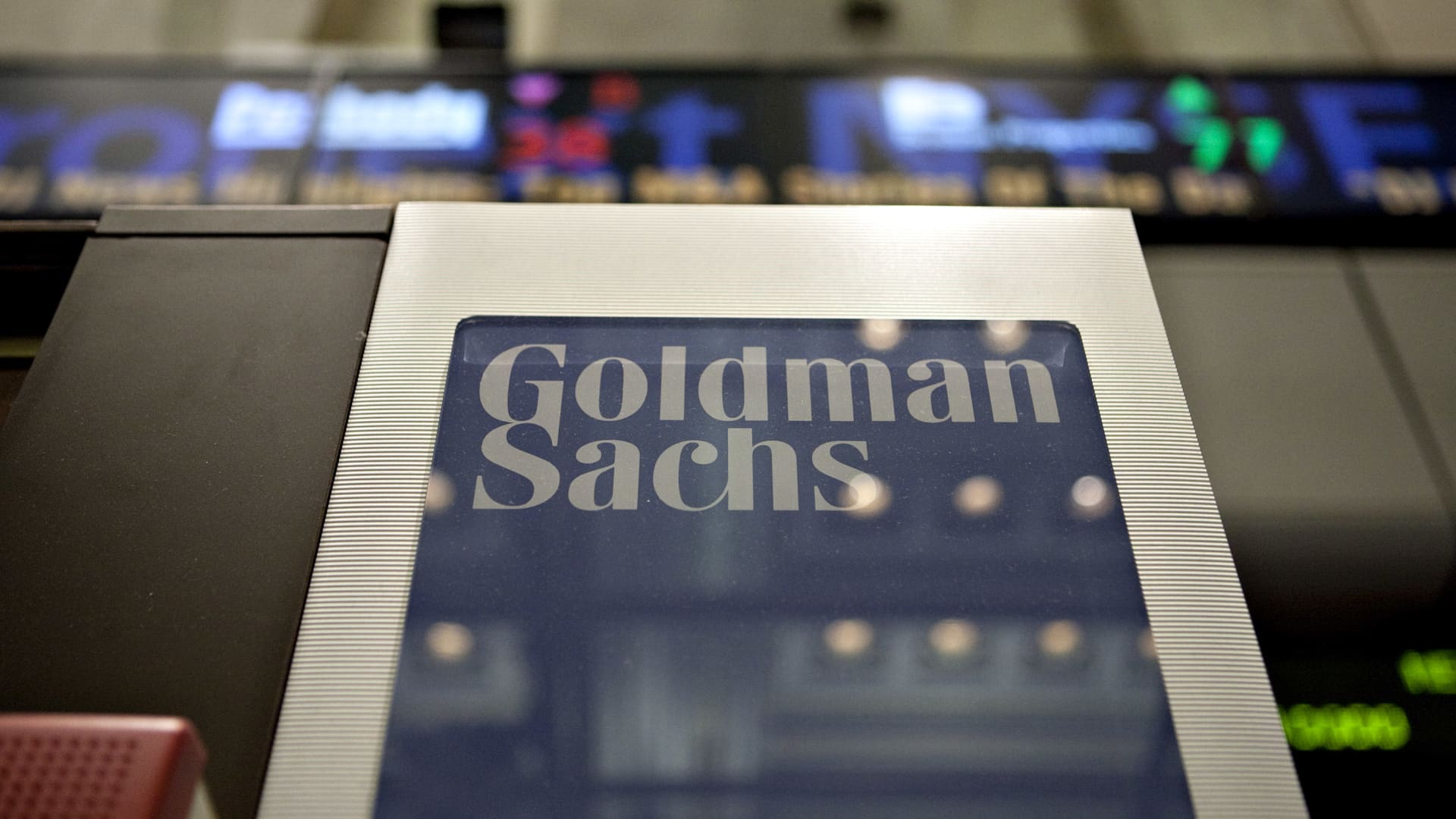A Goldman Sachs Group Inc. logo hangs on the floor of the New York Stock Exchange in New York, U.S., on Wednesday, May 19, 2010.
Daniel Acker | Bloomberg | Getty Images
Investors have piled into short-term U.S. government bonds in a bid to wait out the upheaval caused by a blowout in longer-term yields, according to a Goldman Sachs executive.
An auction this week of 52-week Treasury bills at a 5.19% rate was 3.2 times oversubscribed, its highest demand of the year, said Lindsay Rosner, head of multi-sector investing at Goldman Sachs asset and wealth management.
“They’re saying, ‘I’m now being afforded a lot more yield in the very front end of the curve in government paper’,” Rosner told CNBC in a phone interview, referring to 1-year T-bills. “That is really where you’re seeing investors flock.”
The trade is a key way that institutions and wealthy investors are adjusting to the surge in long-term interest rates that have roiled markets lately. The 10-year Treasury yield has been climbing for weeks, reaching a 16-year high of 4.89% Friday after the September jobs report showed that employers were still hiring aggressively. Investors poured more than $1 trillion into new T-bills last quarter, according to Bloomberg.
The playbook, according to Rosner, takes advantage of the presumption that interest rates will be higher for longer than markets had expected earlier this year. If that sentiment holds true, longer-duration Treasuries like the 10-year should offer better yields next year as the yield curve steepens, she said.
“You get to collect a 5% coupon for the next year,” she said. “Then, in a year, you may have opportunities [in longer-duration Treasuries] at greater than 5% in government securities or potentially in [corporate bonds] that are now properly priced.
“You could then get a double-digit yield, but be confident about valuation, unlike now,” she added.
While 10-year Treasuries have crashed in recent weeks, other fixed income instruments including investment-grade and high-yield bonds haven’t fully reflected the change in rate assumptions, according to Rosner. That makes them a bad deal for the moment, but could create opportunities down the road.
The upheaval that’s punished holders of longer-dated Treasuries in recent weeks has professional managers reducing the average duration of their portfolios, according to Ben Emons, head of fixed income at NewEdge Wealth.
“Treasury bills are in high demand,” he said. “Anyone out there who needs to manage duration in their portfolio, you do that with the 1-year T bill. That’s what BlackRock is doing, it’s what I’m doing.”


